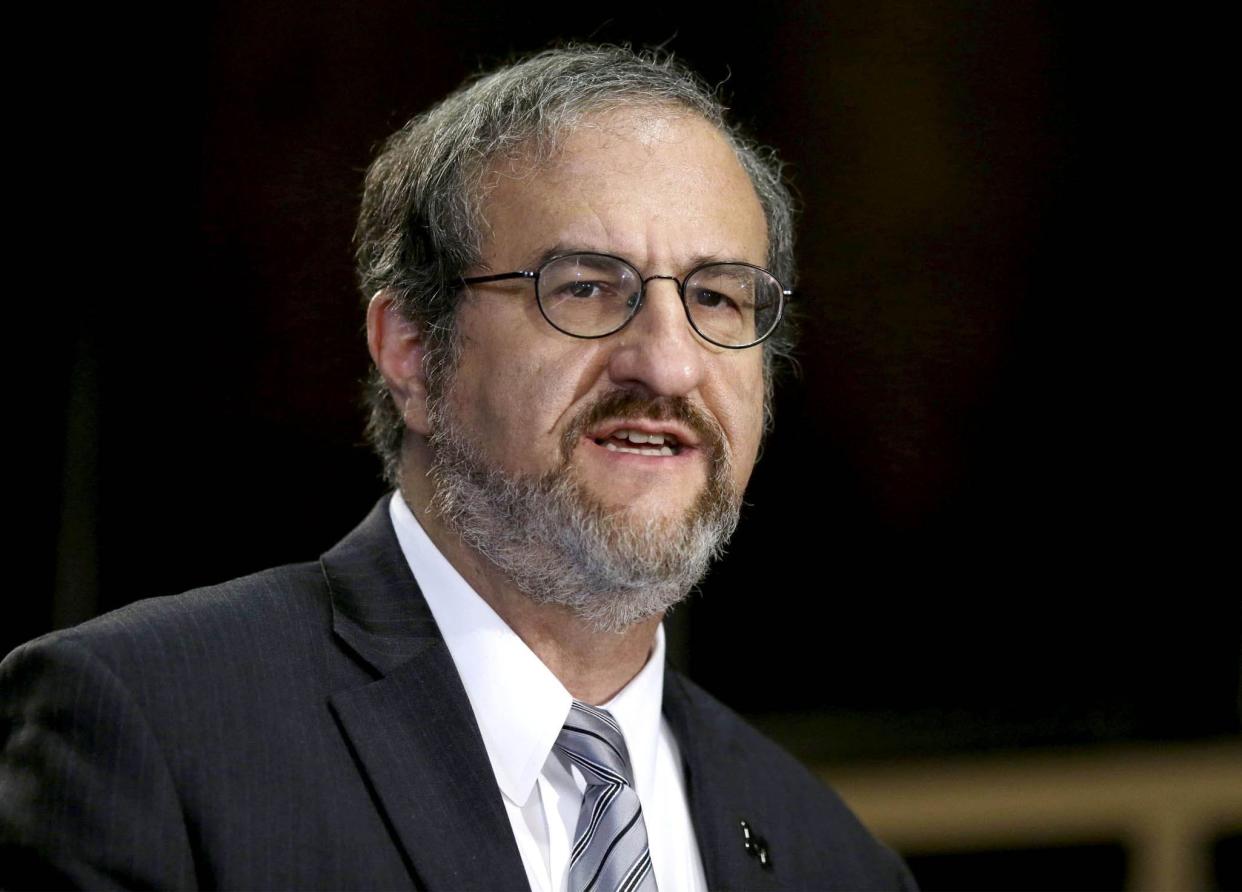Opinion: University of Michigan may have to pay fired Schlissel to keep him off campus

- Oops!Something went wrong.Please try again later.
We don’t know yet whether Mark Schlissel, the University of Michigan president who was fired last weekend, will challenge the action of the Board of Regents. We also do not know if he will be permitted to remain on campus as a tenured faculty member, something he clearly could have done had he resigned or been terminated without cause. If the Regents decide that it is in the best interests of the university for Dr. Schlissel to leave the university, they may simply buy out his tenure rights in order to avoid any potential litigation.
This is what happened in the case of Dr. Carmen Puliafito, the disgraced former dean of the Keck School of Medicine at the University of Southern California. He was forced out of his administrative position after the LA Times reported in July 2017 that Puliafito “kept company with a circle of criminals and drug users who said he used methamphetamine and other drugs with them.” Five days after the article appeared, the New York Times reported that USC “Moves to Fire Former Medical School Dean Over Drug Allegations.”
More: Opinion: University of Michigan regents seemed bent on humiliating lovestruck Schlissel
More: U-M investigating whether Schlissel misused university funds in support of relationship
Nearly two years later, The Chronicle of Higher Education examined USC’s tax returns. These revealed that the university had paid Puliafito “over $1.8 million following his termination from the University.” As a result of that scandal, USC stated it had “implemented significant reforms regarding what corrective actions must be taken when any employee violates university policies and the procedures that must be followed regarding their separation.”
The tenure clause
The University of Michigan learned some lessons from the sexual misconduct scandal involving its former provost, Martin Philbert, and issued a new Supervisor-Employee Relationships policy in July 2021 to address such issues. Included is the statement, “Failure to comply with this policy will be subject to sanctions, up to and including dismissal from employment, in accordance with the appropriate process.”
There is little doubt that the contract between the Regents and Dr. Schlissel allows them to terminate the president for cause. This includes, “misconduct not with regard to the University or the performance of your duties that has or could have, in the good faith judgment of the Regents, more than a de minimis adverse effect on the University (economic or reputational) or on your ability to perform your duties…”
However, the contract goes on to state, “In the event such Cause termination is not also Cause under the University's tenure policies, you shall have your rights as a tenured faculty member.” Thus, it is possible that just like USC and Michigan State University, U-M may face the prospect of (1) having a disgraced senior administrator on the faculty, (2) fighting a potentially lengthy legal battle, or (3) paying a substantial sum to have Schlissel leave. This is somewhat akin to a “Sophie’s choice.”
No good options?
It seems to us that none of these are good choices. While being fired as president is certainly consequential, we don’t believe that the consolation prize should be to receive a life-time appointment as a faculty member, at what could be a substantial salary, for violating an administrative policy that was championed by his own administration.
Schlissel may fight his termination as president, setting up a potentially lengthy legal battle. We think the odds for such litigation would be even greater if the university terminates his tenure. This could go on for months, if not years, and at a considerable cost to the university, not just in terms of dollars but also in unwanted publicity.
But based on his contract, the only alternative may be for the university to pay him millions of dollars to resign his faculty position. While any settlement would have little effect on the $10.3 billion budget of the university, most would view such a payment as unseemly at best.

We’ve noted in our research on university presidents that governing boards are willing to pay presidents substantial sums to step down early. In fact, this was to be the case with Schlissel when he renegotiated his contract just last fall. Perhaps because more and more members of governing boards come from the corporate world, they don’t see a problem in paying out shareholder moneys as an incentive for a CEO to move on.
But just like the public, even those of us who study these institutions have a difficult time understanding why this corporate ethic should apply at a university. After all, public university presidents are public executives. Why should they receive a windfall, especially when removed for cause?

At least for our public universities, we believe it is time for legislatures and governing boards to put an end to what we’ve called platinum parachutes for university presidents. When presidents part ways with their university, they should not pass go and should not collect $2 million.
James Finkelstein is Professor Emeritus and Judith Wilde is Research Professor in the Schar School of Policy and Government at George Mason University.
This article originally appeared on Detroit Free Press: Opinion: U-M may have to pay fired Schlissel to keep him off campus

